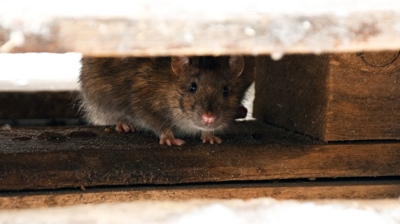
Bed Bug Control In Plymouth: Essential Steps For Elimination
Bed bugs – two words that can quickly cause discomfort in any homeowner's mind. If you live in Plymouth, these tiny invaders may be a more common problem than you think. But don't worry, dealing with bed bugs in Plymouth doesn't have to be a nightmare. Understanding the importance of bed bug control is the first step to reclaiming your peace of mind. We'll take you through the essential steps of identifying, understanding, and efficiently eliminating these pesky critters. From examining your home for hidden pests and understanding the problems they cause to professional intervention and long-term prevention tips – we've got you covered. Sit back, and let's embark on this informative journey together with our effective pest control services in Plymouth.

Why Combat Pest Control Is The Right Choice For Your Home Or Business
-
Affordable TreatmentsPest control should not be something that’s too expensive to be within reach. Combat Pest Control offers a range of pest control options and plans to meet any budget while delivering the service you need.
-
Exceptional ServiceAs a local business that has served the Plymouth area for over 25 years, Combat Pest Control takes our commitment to our customers seriously. We treat you like our neighbors because you are!
-
Customized Pest SolutionsNo two homes or businesses are alike or have the same pest control needs. We take the time to identify your pest issues and assess your unique situation so that we can create a customized treatment plan to meet your needs.
-
Best-In-Class ServiceCombat Pest Control is a local company that treats our customers like our neighbors because you are! From our friendly, informative technicians to our no-nonsense guarantee, you won’t find better service anywhere else.
Examining Your Home: Where To Look For Bed Bugs
Home – it's our haven, a place where comfort and tranquility should be an absolute guarantee. But what happens when you find out that there are unwanted visitors sharing your space? It's time to take action. In this section, we'll guide you through the crucial steps of conducting a thorough home examination for bed bugs.
Spotting The Unseen: Identifying Bed Bug Hiding Spots
In order to root out these pests, it's vital to understand their habits and favorite hiding spots. Bed bugs are incredibly skilled at evading detection. Their tiny, flat bodies allow them to squeeze into the smallest nooks and crannies, making them a master at hide and seek. So, where are the usual hangouts of these tiny pests?
Common bed bug hideouts are not far from their favorite food source – us! They tend to reside in places close to where humans sleep or rest. Prime locations include mattresses, box springs, bed frames, and headboards. But these aren't their only hiding spots. They also settle in nightstands, cracks in furniture, behind peeling wallpaper, and even inside electrical outlets. They'll hide just about anywhere that gives them easy, nocturnal access to a blood meal and allows them to remain undetected during the day.


A member of our team will be in touch shortly to confirm your contact details or address questions you may have.
Bed Bug Infestations: The Problems These Pests Cause
Bed bugs – they may be small, but their presence can lead to big problems. These tiny pests can cause a host of issues that extend beyond just physical discomfort. Let's dive into the impact of an infestation, from health implications to psychological disturbances.
Physical Health: The Itchiness And Allergies
Unfortunately, bed bugs thrive on our blood. Their bites can lead to various physical health issues. The first sign of a bed bug infestation might be waking up with a cluster of red, itchy bites. These nocturnal feeders tend to feast when we're asleep, leaving behind a trail of bites that can cause itching, redness, and swelling. In some cases, they can even lead to severe allergic reactions. Moreover, constant scratching can lead to secondary infections if not properly managed. The key is early detection and seeking out bed bug control in Plymouth.
Mental Health: The Psychological Impact Of Infestations
While physical implications are undoubtedly disturbing, it's also crucial to address the psychological stress caused by bed bug infestations. The knowledge that tiny pests are sharing your bed and feeding on you while you sleep can lead to significant mental and emotional distress.
Sleep deprivation is a common outcome, as the thought of bed bugs crawling around can make it hard to fall asleep. This lack of sleep can further escalate stress levels, leading to anxiety and even depression in extreme cases. The stigma attached to bed bug infestations can lead to feelings of embarrassment and isolation, exacerbating mental health issues.

Hear From Our Happy Customers
They really do say it best!
At Combat Pest Control, your satisfaction is our priority! See for yourself what our customers have to say about working with us.
-
"They were great!"
The owner came out himself and he found a second huge yellow jacket nest that we didn't even know was there and he took care of that nest too.
- Jill G. -
"Highly recommend!!!"
Combat is the best! We couldn’t live in Hanover with John and his crew! Very responsive and thorough.
- Michelle L. -
"Professional, Friendly, & Informative"
John was professional, friendly, and informative. I would highly recommend John and Combat Pest Control to anyone, and if needed in the future they will be the company I call first for any type of pest control in my home.
- Michelle R. -
"The Best!"
Chad is super knowledgeable and friendly. Appreciate his work as well as the rest of the Combat team!
- Robert P. -
"Combat is great!"
They're easy to work with, pricing is great and they always manage to get someone to my house when needed. Having a dedicated technician is helpful too to build rapport with the company.
- Anthony G. -
"I strongly recommend Combat Pest Control"
This is our third year with them. We first called because of ants in the house. I couldn't stop them. Combat did the job and we are ant-free. Combat responds quickly to an ant in the kitchen and wasps and bees nests. Thank you Combat !
- Mark C. -
"Highly recommended."
I'm very pleased with John's pest control performed on my house in south Weymouth. He has found the nest of the ants. I really appreciate his professionalism. Will hire them again and again.
- Shirley H. -
"Made Everything Easy for Us"
John & the Combat team know our house well and the critters that challenge us. He's quick to respond to any attempted incursion and quickly responds to defeat them. They also take great care in working around our dogs
- Kristen P.






